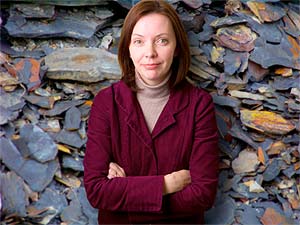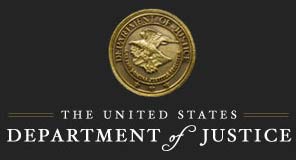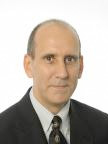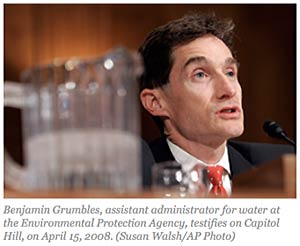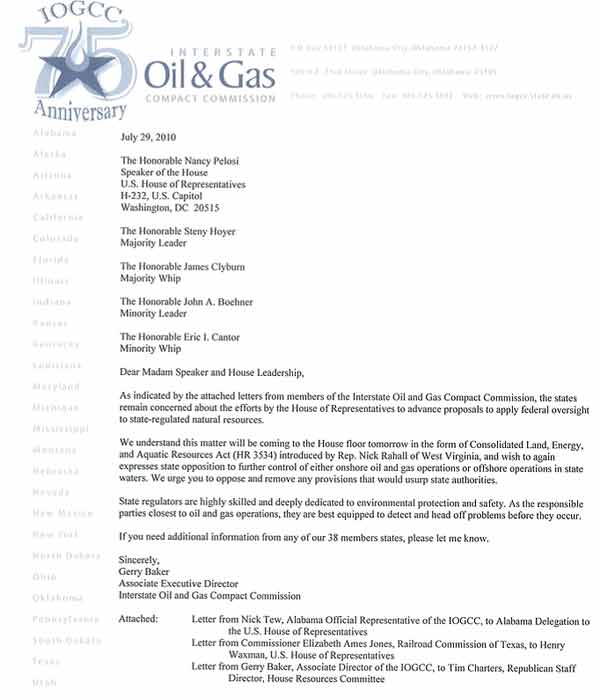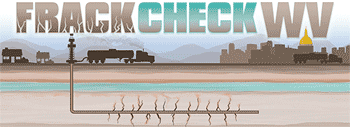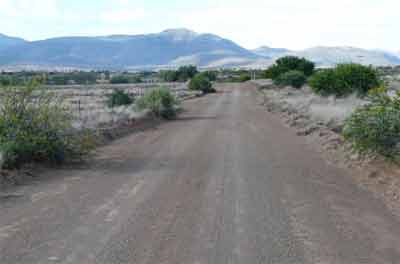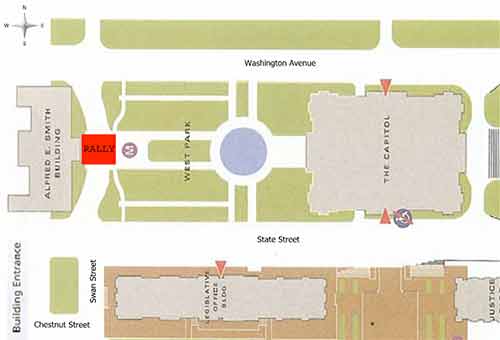Biblio
Agriculture officials have quarantined 28 beef cattle on a Pennsylvania farm after wastewater from a nearby gas well leaked into a field and came in contact with the animals.
The state Department of Agriculture said the action was its first livestock quarantine related to pollution from natural gas drilling. Although the quarantine was ordered in May, it was announced Thursday.
Carol Johnson, who along with her husband owns the farm in north-central Pennsylvania, said she noticed in early May that fluids pooling in her pasture had killed the grass. She immediately notified the well owner, East Resources Inc.
"You could smell it. The grass was dying," she said. "Something was leaking besides ground water."
The Johnsons' farm sits atop the Marcellus Shale, a layer of rock that lies under swaths of West Virginia, Pennsylvania, New York and Ohio. As ProPublica has reported, reports have proliferated of groundwater pollution, spills and other impacts of hydraulic fracturing, a drilling technique that injects massive amounts of water, sand and chemicals underground to break up the formations that hold the gas.
UB geologist Tracy Bank and colleagues found that uranium and hydrocarbons in Marcellus shale are not just physically, but also chemically, bound.
Scientific and political disputes over drilling Marcellus shale for natural gas have focused primarily on the environmental effects of pumping millions of gallons of water and chemicals deep underground to blast through rocks to release the natural gas.
But University at Buffalo researchers have now found that that process -- called hydraulic fracturing or "fracking"-- also causes uranium that is naturally trapped inside Marcellus shale to be released, raising additional environmental concerns.
The research will be presented at the annual meeting of the Geological Society of America in Denver on Nov. 2.
See: Casey Junkins. November 20, 2010. The Intelligencer Wheeling News-Register. "Profs: Wells Pose Threat: Fracking lets loose uranium, other hazards".
Dan Bain, assistant professor of geology at Pitt, and Radisav Vidic, professor of environmental engineering at Pitt, expressed concern about drilling for gas in areas throughout West Virginia and Pennsylvania because of the region's great history of coal production.
"Pennsylvania is filled with abandoned coal mines. I don't want to see this happen with gas drilling," Bain said.
An AB Resources well site about 6 miles outside Moundsville's city limits was home to a June 7 explosion, due to workers breaching a pocket of methane in an old coal mine. After injuring several workers, the charge ignited a large fireball that burned for several days.
The Collaborative on Health and the Environment (CHE) is an international partnership committed to strengthening the scientific and public dialogue on the impact of environmental factors on human health...
Underlying all of CHE's activities is a commitment to strong, uncompromised science. CHE Partners share the conviction that under conditions of scientific uncertainty, when evidence of the potential for harm to human health and the environment is scientifically compelling, precautionary measures that emphasize exposure prevention should be undertaken.
After decades of declining US natural-gas production, a new and powerful drilling technique that fractures rock with high-pressure fluid is opening up vast shale-gas deposits in Texas, Colorado and now many parts of the Northeast.
Hydraulic fracturing or "fracking" injects tons of toxic chemicals into the ground in order to break up shale beds rich in natural gas. Researchers, health and environment experts, and community groups have expressed strong concerns about these chemicals contributing significantly to air and water pollution.
The shale gas reserves, however, are seen by a number of companies, states and landowners as an enticing economic opportunity that could reap billions while lowering residential heating bills. The Environmental Protection Agency began public hearings last March to investigate the issue, and a number of citizen protests have recently been held in regions where fracking is already being undertaken or proposed.
This CHE Partner call featured four leading researchers in different fields of expertise to discuss the potential human and environmental health implications of fracking.
Featured speakers included:
- Sandra Steingraber, PhD, author of Living Downstream
- Theo Colborn, PhD, President, The Endocrine Disruption Exchange (TEDX)
- Tony Ingraffea, PhD, PE, Cornell University
- Weston Wilson, Retired EPA Region 8.
See: Poisoned profits : the toxic assault on our children
See: The Case for a Truth and Reconciliation Commission on Toxic Hazards
Sharon Wilson, Texas OGAP Organizer was flown to EPA headquarters in North Carolina to present four case studies of health impacts caused by natural gas extraction in the Barnett Shale. She met with the top rule makers in the Office of Air Quality Planning and Standards who are working on new rules for the oil and gas industry.
See: Barnett Shale Health Impacts - Case Studies
She brings our attention to the disruptive health impacts of mountain-top removal for frac sand in Chippewa, Wisconsin. Read her post on Bluedaze, Mountain Top Removal for Hydraulic Fracturing Sand.
OpenSecrets.org Launches 'Fueling Washington' Series Exploring Oil and Gas Industry's Political Influence
The Center for Responsive Politics today launches "Fueling Washington," a week-long series of reports exploring the oil and gas industry's evermore intimate relationship with the federal government and the people elected to make the nation's laws.
With a president promising comprehensive climate change legislation and a massive oil spill in the Gulf of Mexico, the fossil fuels industry has dominated political discourse this year in ways it never before has.
And such debate comes at a time when the most interested of parties -- environmentalists, alternative energy producers, the oil and gas industry itself -- are pouring record amounts of money into national politics in an attempt to bend rules, regulations and politicians their way.
Using the tools of our "Fueling Washington" series, you can investigate the tide of influential cash from these deep-pocketed -- and sometimes not so deep-pocketed -- special interest groups. Below, we specifically highlight contributions and lobbying of three special interests with significant stakes in Congress' post-oil spill debates about climate change, greenhouse gas emissions, energy policy and jobs.
Celebrating our 25th anniversary in 2008, the Center for Responsive Politics is the nation's premier research group tracking money in U.S. politics and its effect on elections and public policy.
Nonpartisan, independent and nonprofit, the organization aims to create a more educated voter, an involved citizenry and a more transparent and responsive government.
Minnesota based Blog by Shelly Thomas. Lively, entertaining, with well organized links, videos, photos. Covers UK, Canadian, international and U.S. issues. Updated regularly since April 2008.
Futurism Now is about the energy, challenges, and green jobs of the future. There are big changes coming and Futurism Now attempts to find the news and information people will need to adapt to their changing lifestyles.
See: Take the Tar Sands Pledge of Resistance
“We are in a crisis situation. In order to bring global CO2 back to the safe zone, we need a global shift now,” writes Beyond Talk. “These and other tar sands operations amount to the single-most destructive and unsustainable project on earth. (See this brief H2oil segment for an excellent introduction.)”
See: H2Oil: An Explanation of the Tar Sands in Alberta
Example Feed from 10/3/2010:
- Worst Climate Change Video Ever Made
- Activists Vow to End Mountaintop Removal
- The End of the World As We Know It
- More Downsides to Natural Gas
- Fighting Big Coal With Some Success
- UN Urges Governments to Build a Climate Change Foundation
- H2Oil: An Explanation of the Tar Sands in Alberta
- Recent Climate and Politics News
- Eco Study and Inspiration
- Pacific Walrus Threatened by Global Warming
The Continental Center and KBR Tower (foreground) in downtown Houston.
Photo by Blair McFarlain.
The London lawyer accused by American authorities of helping KBR and its partners bribe Nigerian officials lost his battle against extradition yesterday.
The British High Court affirmed a decision to send Jeffrey Tesler, 62, a U.K. citizen, to Houston to answer criminal charges in federal court. He faces up to 55 years in prison and forfeiture of more than $132 million.
Tesler was indicted in February 2009. He was charged with one count of conspiracy to violate and ten counts of violating the FCPA. The DOJ alleges he was part of a decade-long scheme to bribe Nigerian government officials in exchange for contracts worth $6 billion to build liquefied natural gas facilities on Bonny Island, Nigeria.
His co-defendant, Wojciech Chodan, KBR's former commercial vice president at a U.K. subsidiary, was extradited from Britain in December last year. He pleaded guilty in Houston federal court to conspiring to violate the FCPA.
Chodan's sentencing is scheduled for February 22, 2011. He faces up to five years in prison on the conspiracy charge. As part of his plea agreement, Chodan, 72, who's also a U.K. citizen, agreed to forfeit $726,885.
See: Barry Meier and Clifford Krauss. "Inquiry Puts Halliburton in a Familiar Hot Seat". NYT Business Day. October 28, 2010.
Last year, for example, Halliburton and KBR agreed to pay $579 million to settle charges brought by the Justice Department and the Securities and Exchange Commission in connection with bribes that KBR had paid to top Nigerian officials over a decade. The companies still face criminal liability in Nigeria over the episode, which involved contracts to build a liquefied natural gas complex.
See: Snamprogetti, ENI In $365 Million Settlement
See: Fracking Resource Guide | Halliburton (updated)
Richard L. Cassin lived in the Middle East and Asia for 25 years. Before founding Cassin Law LLC, he was a senior partner in a major international law firm and managing partner of its Asia practice in Singapore, Hong Kong and Beijing.
He helps clients comply with the Foreign Corrupt Practices Act and other U.S. laws, and regularly assists companies facing compliance issues.
Get Involved
If you think you might be affected by a proposed natural gas or hydroelectric project regulated by the Commission, you have certain rights. These rights range from being able to look at project correspondence to becoming an intervener and being able to appeal any FERC decisions in federal court.
The Commission's Citizen's Guides are a good place to start.
|
Should I Get Involved? Only you can ultimately answer this but we can help you think things through. Read More. |
How to Get Involved Take advantage of a suite of electronic services to easily get involved. Still prefer paper? That's fine too. Read more. |
The Process Natural gas and hydropower projects have distinct processes. This overview will help you to participate. Read More |
The Federal Energy Regulatory Commission, or FERC, is an independent agency that regulates the interstate transmission of electricity, natural gas, and oil.
Contains sections on how to file a Freedom of Information Act (FOIA) request, Enforcement, Legal Resources, Dispute Resoulution Service (DRS), etc.
When Benjamin Grumbles was assistant administrator for water at the Environmental Protection Agency in the George W. Bush administration, he oversaw the release of a 2004 EPA report that determined that hydraulic fracturing was safe for drinking water. Then he watched as Congress used those findings to bolster the case for passing a law that prohibited the EPA from regulating fracking under the Safe Drinking Water Act.
In two interviews with ProPublica -- the first on June 29, 2009, soon after he left the EPA, and the second on March 5, 2011 -- Grumbles ponders the criticism leveled at the 2004 study and suggests that it's now time for Congress and the EPA to take another look at hydraulic fracturing. Our questions, and his answers, have been combined and edited for length to the version you see here.
Grumbles is currently on the board of the Clean Water America Alliance, a group focusing on water sustainability issues. He has also served as head of Arizona's Department of Environmental Quality.
This website is a joint project of the Ground Water Protection Council and the Interstate Oil and Gas Compact Commission. It was launched on April 11, 2011 and only covers wells drilled starting in 2011. It appears to be an attempt at Gas Industry "transparency" and has funding support from the U.S. Depatment of Energy (DOE). It claims to disclose the chemical additives used in the hydraulic fracturing process on a well-by-well basis.
Of all the lobbyists bringing their issues to Capitol Hill, the Groundwater Protection Council is one of the smaller players. I have to wonder, reading the rankings on Open Secrets, "Lobbying Spending Database: Environment, 2009", why this groundwater organization spends less on its annual lobbying than "Fur Wraps the Hill" or the "Pittsburgh Parks Conservancy"? Groundwater is a hot button national issue, affecting both the urban and agricultural sectors.
The industry groups proudly stamping their logos on FracFocus need to come up with more cash or be outed as a do-nothing front organization advocating the corporate pillaging of our natural resources in the name of energy development. They wave the Tenth Amendment around like the flag at Iwo Jima.
How do they demonstrate the committment to "protecting our nation's ground water"? They conveniently share an address with the Interstate Oil and Gas Compact Commission (IOGCC). 13308 N. MacArthur Blvd., Oklahoma City, OK.
IOGCC claims to have a noble mission but talk is cheap... They advocate less intervention by the Federal government on behalf of the shared resources in our environment. Twenty thousand bucks?
Read between the lines! Here is a letter written to Congress by the IOGCC calling for the Feds to keep their hands off! The $20,000 looks like a smokescreen to me. Pocket change...(Neil Zusman, 2011-05-24).
From their website:
On this site you can search for information about the chemicals used in the hydraulic fracturing of oil and gas wells. You will also find educational materials designed to help you put this information in perspective.
See: Chu Names Panel to Study Fracking.
My critique of the NYT Green report
Broder's piece goes on to offer a smokescreen of protest by the right, but according to Dusty Horwitt of the Environmental Working Group, “An industry insider like John Deutch is completely unacceptable to lead this panel...It looks as if the Obama Administration has already reached the conclusion that fracking is safe.”
FrackCheckWV.net was created as a platform for educating citizens about the environmental impacts of hydraulic fracturing and providing tools and guidance for effective citizen action and advocacy.
The editors of this site are volunteers with watershed and conservation groups in both West Virginia and neighboring states.
Excellent website has sections on Take Action, About, Friends, Impacts, Regulation, Your Report, Calendar, Cool Blogs and Links.
See: New WVU-Va Tech study links water quality and cancer deaths in West Virginia coalfields
See: West Virginia Surface Owners' Rights Organization (WVSORO)
See: West Virginia Blue: Dunkard Creek fish kill
See: The risks of oil and gas production acknowledged around the world
See: Fight Over Gas Wells in Chief Logan Heads to Supreme Court
See: WATER: Gas drilling in huge Appalachia reserve yields foul, briny byproduct - AP
See: Natural Gas Drilling Threatens Communities in Northeastern United States
See: Marsh Fork Elementary: Journey Up Coal River | A Community and Strip Mining
A moratorium on hydraulic fracturing has been under effect in South Africa since April, 2011.
On Friday 25 March, environmental activist Lewis Pugh delivered a passionate call to action at a public lecture in Cape Town. He implored South Africans to stand up for our rights – particularly the right to water, and the right to a healthy environment – and take on corporate bullies like Shell. If you care about the Karoo, if you care about our country, keep reading...
Ladies and gentlemen, that is what is at stake here today: our children's future. And that of our children's children.
There may be gas beneath our ground in the Karoo. But are we prepared to destroy our environment for five to ten years worth of fossil fuel and further damage our climate? Yes, people will be employed – but for a short while. And when the drilling is over, and Shell have packed their bags and disappeared, then what? Who will be there to clean up? And what jobs will our children be able to eke out?
Now Shell will tell you that their intentions are honourable. That fracking in the Karoo will not damage our environment. That they will not contaminate our precious water. That they will bring jobs to South Africa. That gas is clean and green. And that they will help secure our energy supplies. When I hear this, I have one burning question. Why should we trust them? Africa is to Shell what the Gulf of Mexico is to BP.
Shell, you have a shocking record here in Africa. Just look at your operations in Nigeria. You have spilt more than 9 million barrels of crude oil into the Niger Delta. That's twice the amount of oil that BP spilt into the Gulf of Mexico. You were found guilty of bribing Nigerian officials, and to make the case go away in America, you paid an admission of guilt fine of $48 million. And to top it all, you stand accused of being complicit in the execution of Nigeria's leading environmental campaigner, Ken Saro-Wira, and eight other activists. If you were innocent, why did you pay $15.5 million to the widows and children to settle the case out of court?
Shell, the path you want us to take us down is not sustainable. I have visited the Arctic for seven summers in a row. I have seen the tundra thawing. I have seen the retreating glaciers. I have seen the melting sea ice. And I have seen the impact of global warming from the Himalayas all the way down to the low-lying Maldive Islands. Wherever I go, I see it.
Now is the time for change. We cannot drill our way out of the energy crisis. The era of fossil fuels is over. We must invest in renewable energy. And we must not delay.
Shell, we look to the north of our continent and we see how people got tired of political tyranny. We have watched as despots, who have ruled ruthlessly year after year, have been toppled in a matter of weeks. We too are tired. Tired of corporate tyranny. Tired of your short-term, unsustainable practices. We watched as Dr Ian Player, a game ranger from Natal, and his friends, took on Rio Tinto (one of the biggest mining companies in the world) and won. And we watched as young activists from across Europe, brought you down to your knees, when you tried to dump an enormous oil rig into the North Sea.
Shell, we do not want our Karoo to become another Niger Delta. Do not underestimate us. Goliath can be brought down. We are proud of what we have achieved in this young democracy, and we are not about to let your company come in and destroy it.
So let this be a call to arms to everyone across South Africa, who is sitting in the shadow of Goliath: stand up and demand these fundamental human rights promised to you by our Constitution. Use your voices – tweet, blog, petition, rally the weight of your neighbours and of people in power. Let us speak out from every hilltop. Let us not go quietly into this bleak future.
Let me end off by saying this: you have lit a fire in our bellies, which no man or woman can extinguish. And if we need to, we will take this fight all the way from your petrol pumps to the very highest court in this land. We will take this fight from the farms and towns of the Karoo to the streets of London and Amsterdam. And we will take this fight to every one of your shareholders. And I have no doubt, that in the end, good will triumph over evil. DM
Lewis Pugh is a lawyer and environmental activist. He belongs to the Treasure the Karoo Action Group.
See: Aragom Eloff. Ivo Vegter vs. the Fracking Fringe. 2011-04-18.
See: Julienned DuToit. Fracking the Karoo - The People Say No! 2011-01-31.
See: Robert Brand. South Africa Endorses Plans For Karoo Gas-Drill Freeze, Ending Shell Hopes - Bloomberg. 2011-04-21.
See: Donald Paul. Drill Baby Drill. 2011-04-18.
Ontario has a new blog:
Stop Fracking Ontario is a web project to inform and promote activism against fracking in Ontario, and in the surrounding region, and elsewhere.
This project is an all-volunteer non-partisan effort that is not tied to any one organization. We will need a broad coalition of citizens to apply ongoing pressure which could stop the fracking industry.
We also need to support a range of positive alternatives, so we can phase out natural gas.
See: Nelson, Joyce. “Ugly Reality of Fracking.” Greenmuze, April 19, 2011.
“Do you know what fracking the Karoo is like?” demanded Esme Senekal of Somerset East. The people from Royal Dutch Shell and their consultants didn’t reply, their faces impassive.
“It’s like you coming and drilling holes in our mother, and then leaving us to look after her and take her to hospital. Leave the Karoo alone!
“This is the last piece of holy nature in this country. No money is worth this. You can’t replace pristine nature with money.”
The surrounding sunburnt Karoo farmers, not a group usually given to high emotion, loudly applauded her.
The public meeting, organised by Shell’s consultants, Golder Associates (slogan: “Engineering Earth’s development, protecting Earth’s integrity”), was held at the Somerset East Town Hall, and started with a prayer to protect God’s creation, nature.
Most of the attendees bowing their heads were farmers who face the possibility of losing everything if, heaven forbid, shale gas is found under their farms – or for that matter, anywhere in the Karoo.
See: Aragom Eloff. Ivo Vegter vs. the Fracking Fringe. 2011-04-18.
See: Donald Paul. Drill Baby Drill. 2011-04-18.
See: Lewis Pugh. Frack Off, Shell!. 2011-04-05
See: Robert Brand. South Africa Endorses Plans For Karoo Gas-Drill Freeze, Ending Shell Hopes - Bloomberg. 2011-04-21.
Update on Event:
...More than 125 activists gathered from all over New York. We heard many moving speakers, including, but not limited to: Sandra Steingraber, Bob Boyle, Wes Gillingham, Legislative Representatives Barbara Lifton, Donna Lupardo, Liz Krueger, Brian Kavanagh, Danny O'Donnell, Michelle Schimel, Deborah Glick, Aileen Gunther and Tom Abinati as well as Catherine Hughes and Gene Stilp, an emissary from Pennsylvania's beleaguered gas fields, among notable others.
After the Rally, the crowd snaked from the "Well" in the Legislative Office Building all the way to the Capitol next to the Hall of Governors where Governor Cuomo's office is located. As we ascended the staircase, our chant of "NO FRACKING WAY" began to reverberate off the stone walls.
By prior agreement with highly accommodating New York State Troopers, the crowd gathered in the beautiful and historic War Room. The high-volume chant went on and on and on for nearly an hour, maybe longer. The floor in the War Room was shaking. People, including at least one minister, were dancing and banging on anything that could make noise. It was totally unbelievable. Albany was buzzing today at the performance of the "leather lung choir!!!" Rock on.
Check out "War Room protest: ‘No fracking way’" a video posted by the Albany Times Union. It will knock you on your butt.
See also: Nancy Hickling. "Local Protesters Travel To Albany To Rally Against Hydrofracking." WBNG News. 2011-03-24.
See also: Erin Connolly. "Rally to expand hydrofracking impact study." TWEAN news channel of Albany: Capital Region YNN. 2011-03-25.
...Commissioner Martens acknowledged that we had presented new data that had not been incorporated into the woefully deficient originally draft SGEIS or the Executive Order proceeding. He was entirely gracious and said he was still in the process of being briefed about the many aspects of revising the Draft SGEIS per Executive Order No. 41. He said no decision would be made in our meeting about allowing public comment regarding how DEC should go about revising the Draft SGEIS. He offered to meet again with the group.
Original Report. 2011-03-22
We are Full Steam Ahead for a Noon Rally this Thursday, March 24, 2011 at the New York State Capitol (West Capitol Park, Swan Street Steps) requesting Governor Andrew M. Cuomo to expand the scope of the Marcellus Shale draft Supplemental Generic Environmental Impact Statement (SGEIS).
Update
Neither rain nor snow nor sleet will keep us from our momentous Rally tomorrow in Albany to request Governor Cuomo to expand the scope of the Marcellus Shale draft SGEIS.
Since inclement weather is predicted, we are moving our Rally indoors. Please gather at 12:00 Noon in the "Well" of the Legislative Office Building. See map below. Just walk into the LOB from the Concourse of the Empire State Plaza. The Well is just past the elevators. You can't miss it.
This large cavernous space will showcase our event to Legislators, staff and lobbyists. It is ideal for our purposes. Thank you, Assemblywoman Lifton, for all your assistance on our behalf.
In addition to the highly notable individuals and groups I mentioned yesterday, we will be joined by Shaleshock, Committee to Protect the Finger Lakes, Cortland Drilling Awareness Coalition, Tompkins County Legislator Pam Mackesey and Catherine Hughes of New York City Community Board One, which passed a major resolution last evening in support of expanding the scope of the draft SGEIS.
I am pleased to let you know we will be joined by State Legislators, physicians concerned about gas drilling threats to public health, NYPIRG, NYRAD, Catskill Mountainkeeper, Sierra Club: Atlantic Chapter, acclaimed ecologist, Sandra Steingraber, and legendary environmental activist and author, Robert H. Boyle, who revealed GE's contaminated the Hudson River with PCBs (polychlorinated biphenyls).
Most importantly, grassroots activists and groups will be gathering at the Capitol from all over New York...
Thank you so much for your strong support.
See: New York State Assembly Passes Moratorium on Hydrofracking | Governor Vetoes Bill.
See: Leaked EPA Documents Expose Decades-Old Effort to Hide Dangers of Natural Gas Extraction.








